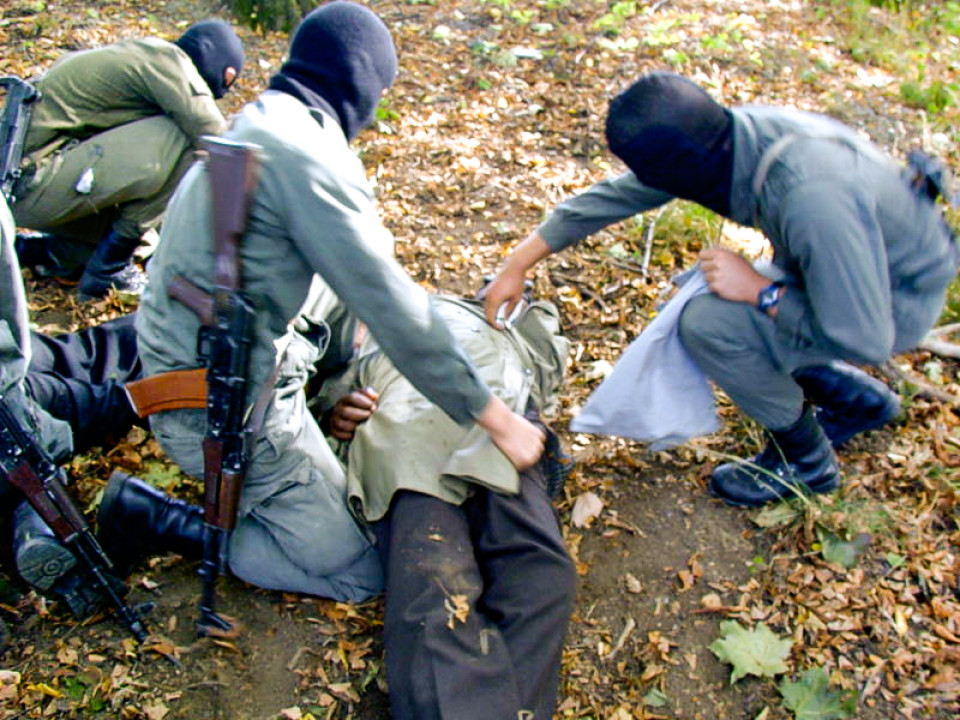The Hunt for the Resilience Gene

Can we find a gene for resilience? What about a gene for Psychological Trauma? Wouldn’t that be great?
Epigenetic research has opened up many new avenues for figuring out why things are the way they are. Gene sequencing, coupled with CRISPR technology, offers seemingly unlimited opportunities to both understand and manipulate gene function and expression.
Why not apply this science to Psychology? Why not check out the connection between genes and resilience, for example? Or why not try to connect PTSD with genetic markers?
The basic principles of gene editing, or ‘germline engineering’, are now well established and in use. For example, Shoukhat Mitalipov of Oregon Health & Service University has just announced success in editing genetic sequences in human embryos. (MIT Technology Review, July 26, 2017)
Sure, this is not a treatment for a human condition. but work is well on the way. The hunt for the PTSD gene has been going on for some years already. What Mitalipov’s research indicates that once genes are identified as being responsible for ‘conditions’ it may be possible to edit them out or ‘correct ‘ them.
So, what is the state of play with PTSD and Resilience and genetic research?
One example is the Marine Resiliency Study (MRS), based at the UCSD Department of Psychiatry, Here a cohort of some 4,000 US Marines forms a sample population for a prospective study of factors predictive of PTSD.
In other words - let’s see what we can find about genetic processes and the onset of psychological disorders.
In an article published in 2015, Nievergelt and colleagues (Psychoneuroendocrinolgy, 2015) reported on a genome-wide association study (GWAS) on the MRS sample. One interesting finding was establishing that one transferase domain containing 1 gene (the gene titled PRTFDC1) as “a genome-wide significant PTSD locus”.
Obviously the authors are very cautious in making any conclusions, strongly advocating for a lot more research. They do conclude, however, that they “found evidence for PRTFDC1 as a potential novel PTSD gene, a finding that awaits further replication”. (See citation below)
Another ongoing study is the Army Study to Assess Risk and Resilience in Servicemembers (Army STARRS), managed by the University of Michigan on behalf of the National Institute of Mental Health (NIMH).
Stein and colleagues (JAMA, 2016) published the results of an experiment designed, in their words, “To discover genetic loci associated with the lifetime risk for PTSD in 2 cohorts from the Army STARRS.” The results were somewhat unsatisfactory, although they did observe a genetic overlap between PTSD and rheumatoid arthritis and psoriasis. (see citation below)
I am uneasy about a couple of things.
First, the military studies appear to assume a link between resilience and PTSD. While the studies reported do not make that direct connection the title of both the MRS and the STARRS projects imply the connection. They are both, after all, studies aimed at ‘resilience’.
The problem is that there is no universal measure of ‘resilience’, and while there is a theoretical construct for PTSD (and a diagnostic protocol), it is a leap to conclude that a link between a specific gene and PTSD might also indicate a link to resilience.
There may be no connection between PTSD and resilience at all.
Second, the objective of the military is, surely, to enhance the capacity of soldiers to function in conflict contexts, at the lowest possible cost. I suspect that the identification of a ‘PTSD gene’ would likely lead to development of so-called preventive ‘treatments’ which would, obviously, involve germline engineering.
Yet, to me, the obvious conclusion to be drawn from the DSM-V diagnosis is that PTSD is directly connected to contexts where individuals experience threat to life. i.e. war
The ‘treatment’ for PTSD in conflict contexts would appear fairly simple. Avoid being in a conflict context.
To go the other direction is disturbing.
Military training involves a structured, comprehensive and professional process of desensitising the reactions and responses to life-threatening contexts and events. The abilities to maintain cognitive functioning, mission focus and team cohesion are the core of high quality military training.
In effect military training is aimed at improving human functioning in the face of death.
Unfortunately this investment of time and money can be derailed by PTSD and other Acute Stress Reactions. Imagine how much money could be saved if the genes (if there be such things) that create a propensity for PTSD could be engineered?
Still, I am reassured by the complexity of gene research and, in particular, the process of ‘gene expression’. We can, it appears, have millions of genes that are never ‘switched on’ (expressed). Genes are activated by enzymes and the genes produce proteins which influence physiological functions. Figuring out just how this process works is highly challenging, even if we can link a specific gene to a specific condition.
Absent the opportunity to visit my local doctor and have my genes engineered, I remain committed to a belief that resilience is a constellation of factors that is demonstrated by the capacity and ability to thrive and create.
As yet we haven’t established a diagnostic criteria for creativity and thriving.
But we sure as heck know it when we see it.
References:
First Human Embryos Edited in U.S: Researchers have demonstrated they can efficiently improve the DNA of human embryos.
by Steve Connor July 26, 2017
https://www.technologyreview.com/s/608350/first-human-embryos-edited-in-us/
Genome-wide Association Studies of Posttraumatic Stress Disorder in 2 Cohorts of US Army Soldiers.
Stein MB1, Chen CY2, Ursano RJ3, Cai T4, Gelernter J5, Heeringa SG6, Jain S7, Jensen KP8, Maihofer AX9, Mitchell C6, Nievergelt CM9, Nock MK10, Neale BM11, Polimanti R5, Ripke S11, Sun X7, Thomas ML9, Wang Q12, Ware EB6, Borja S13, Kessler RC14, Smoller JW2; Army Study to Assess Risk and Resilience in Servicemembers (STARRS) Collaborators.
JAMA Psychiatry. 2016 Jul 1;73(7):695-704. doi: 10.1001/jamapsychiatry.2016.0350.
Genomic predictors of combat stress vulnerability and resilience in U.S. Marines: A genome-wide association study across multiple ancestries implicates PRTFDC1 as a potential PTSD gene.
Nievergelt CM1, Maihofer AX2, Mustapic M3, Yurgil KA4, Schork NJ5, Miller MW6, Logue MW7, Geyer MA2, Risbrough VB8, O'Connor DT9, Baker DG10.
Psychoneuroendocrinology. 2015 Jan;51:459-71. doi: 10.1016/j.psyneuen.2014.10.017. Epub 2014 Oct 30.
Read next
A Brief Collapse of Time
We are in lockdown. What day is it? One of the most common comments on social media is the old joke about yesterday, today, tomorrow, everyday.
Read more50 Dead - Resilience Reflection #3 - Social Cohesion
We know that relationships are both protective and growth-promoting.
Read more50 Dead - Resilience Reflection #2 - Leadership
Leadership and resilience are interconnected. This isn’t a new finding, of course. But rarely do we experience examples of how leadership supports, mediates and builds leadership.
Read more

